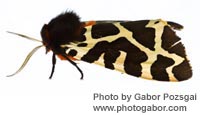Artur Jarmolowski
Research FocusOur laboratory is interested in studying general mechanisms of splicing regulation in plants. We investigate splicing of U12-type introns and its role in expression of plant genes. We study plant proteins that are involved in splice sites selection and alternative splicing. In collaboration with Dr John Brown's laboratory at the Scottish Crop Research Institute in Dundee (Scotland, UK) we have analysed sequence elements that are involved in plant U12 introns splicing efficiency using three different Arabidopsis U12-dependent introns. Differences in splicing efficiency among the introns were investigated by mutational analyses of splice site and putative branchpoint sequences, leading to identification of essential branchpoint nucleotides in vivo. We showed the presence of exon splicing enhancer sequences in the 5’ flanking exon of one U12-dependent intron that is required for maximal splicing efficiency. We also demonstrated that UA content influenced plant U12 intron splicing efficiency and that two U-rich RNA binding proteins, UBP1 and RBP45, had differential effects on splicing of U2 and U12 introns. Interestingly, RBP45 regulated the splice sites selection in U12 containing plant pre-mRNA. We also investigate proteins that are involved in RNA metabolism and signal transduction of abscisic acid (ABA). In Arabidopsis thaliana, we characterised two proteins, named AtCBP20 and AtCBP80, which were homologues to human subunits of nuclear cap-binding complex (CBC). We showed that in plant cells, contrary to vertebrates, CBP80 must be transported to the nucleus by a “piggyback” mechanism, as a complex with CBP20. Using RNAi strategy we obtained two mutants with very low level of expression of AtCBP20 and AtCBP80. Both mutants showed the same phenotype: abscisic acid (ABA) hypersensitivity, drought resistance and characteristic serrate leaves. We observed similar phenotypes in the case of AtCBP20 and AtCBP80 T-DNA insertion mutants. We are currently trying to find a molecular connection between the nuclear cap-binding complex and ABA signaling in plants. Publications
Key lab techniques: plant transformation, RNAi technology, yeast two hybrid system, splicing assays in transfected tobacco protoplasts, recombinant protein expression and purification, subcellular localisation of proteins, protein/protein and protein/RNA interactions, RNA modification. Key lab reagents: cDNA clones, expression clones, anti-AtCBP20 and anti-CBP80 sera. Lab contact: Ewa Morkowska: ewamor@amu.edu.pl |






